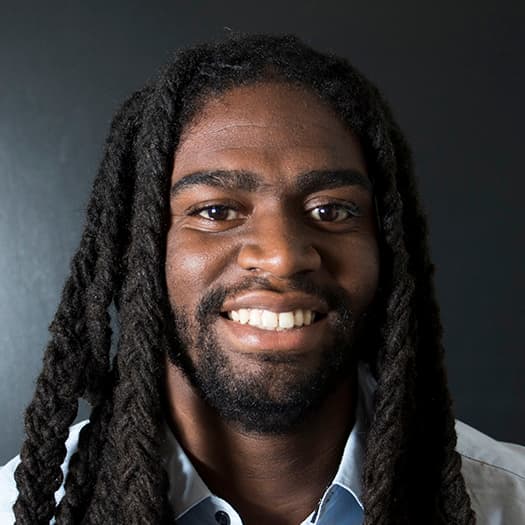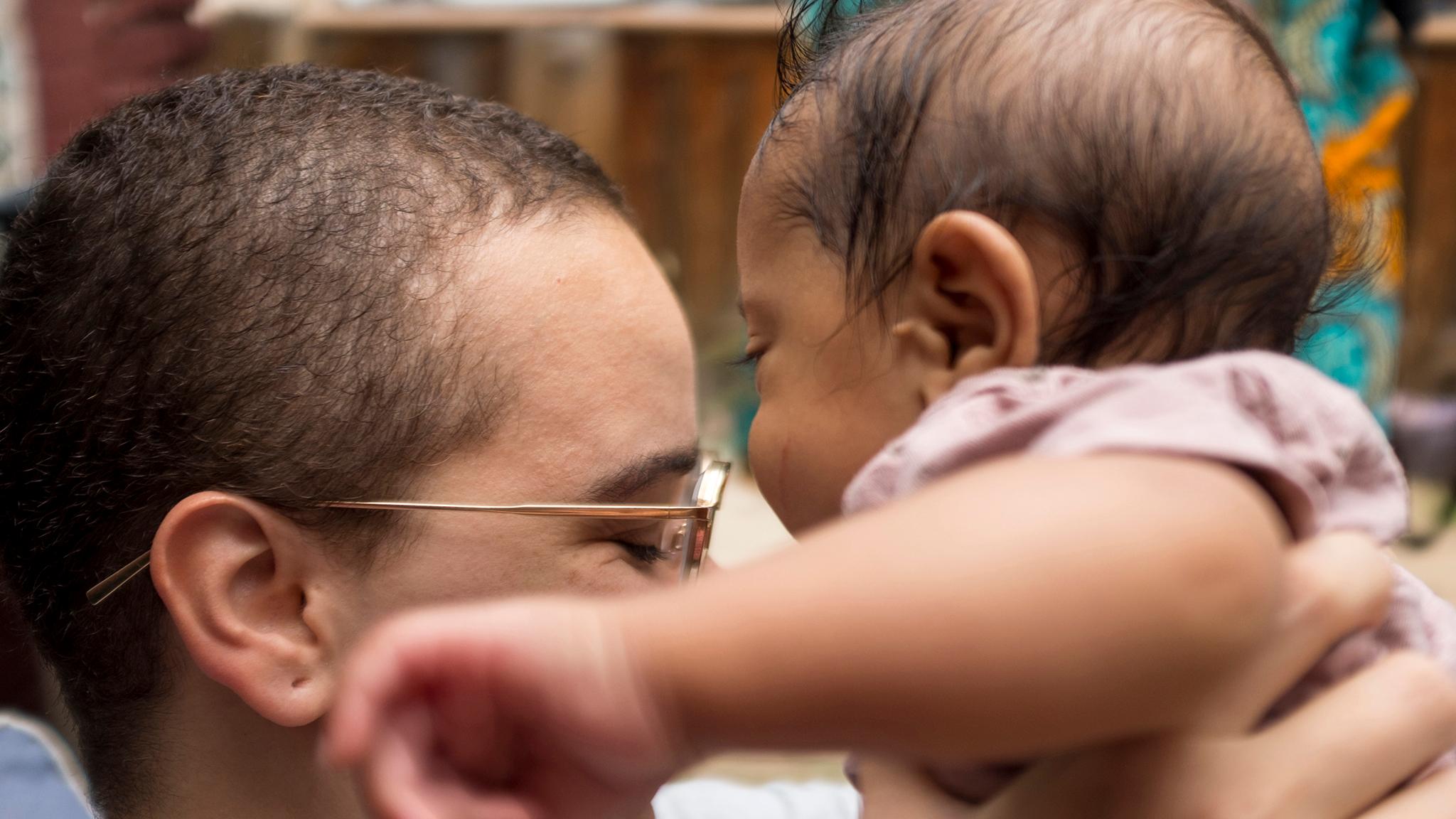For three years, women in Denver have honored Black Breastfeeding Week, and this year, for the first time, Latinas will join the movement. It's the inaugural Black and Latina Breastfeeding Week.
China Tolliver, the event organizer and host of the Birth Control podcast, chatted with her friend about it and, initially, they considered having two different weeks for the respective communities. But they realized it would be in the interest of both groups of women to celebrate motherhood together.
“The challenges that Latina women face are the challenges that black women face in Denver so, like, why are we separating this? Let's bring women together because we're all doing the same thing, trying to find a voice in breastfeeding,” Tolliver said.
The weeklong initiative will conclude this Sunday with a mommy meet-up for all women and those that support mothers and their choice to breastfeed, from 11 a.m. to 2 p.m. at the Whittier Café. Last year, Tolliver said, about 150 women showed up to the continually growing event.
Tolliver sees in this push to normalize breastfeeding has a generational aspect, as many previous generations were misinformed about the effects of breastfeeding. It's also often been shrouded in a cultural stigma about what breastfeeding represents, especially when it’s done in public.
“Black women who are my generation really want to breastfeed, but their mothers may not have breastfed, their mothers may have been pushed towards formula or condensed milk or pets' milk or all the other breast milk substitutes that were available at the time, because the idea was poor women breastfed and wealthy women could afford formula,” Tolliver said.
She also pointed out that it places women in a challenging position to transition into breastfeeding, public or otherwise, when they don’t have a support structure to assist them educationally and emotionally. There were also concerns that a skinny baby was unhealthy and breastfeeding alone wouldn’t be enough to do the job, as well as pressure from partners and other women about the choice to breastfeed.
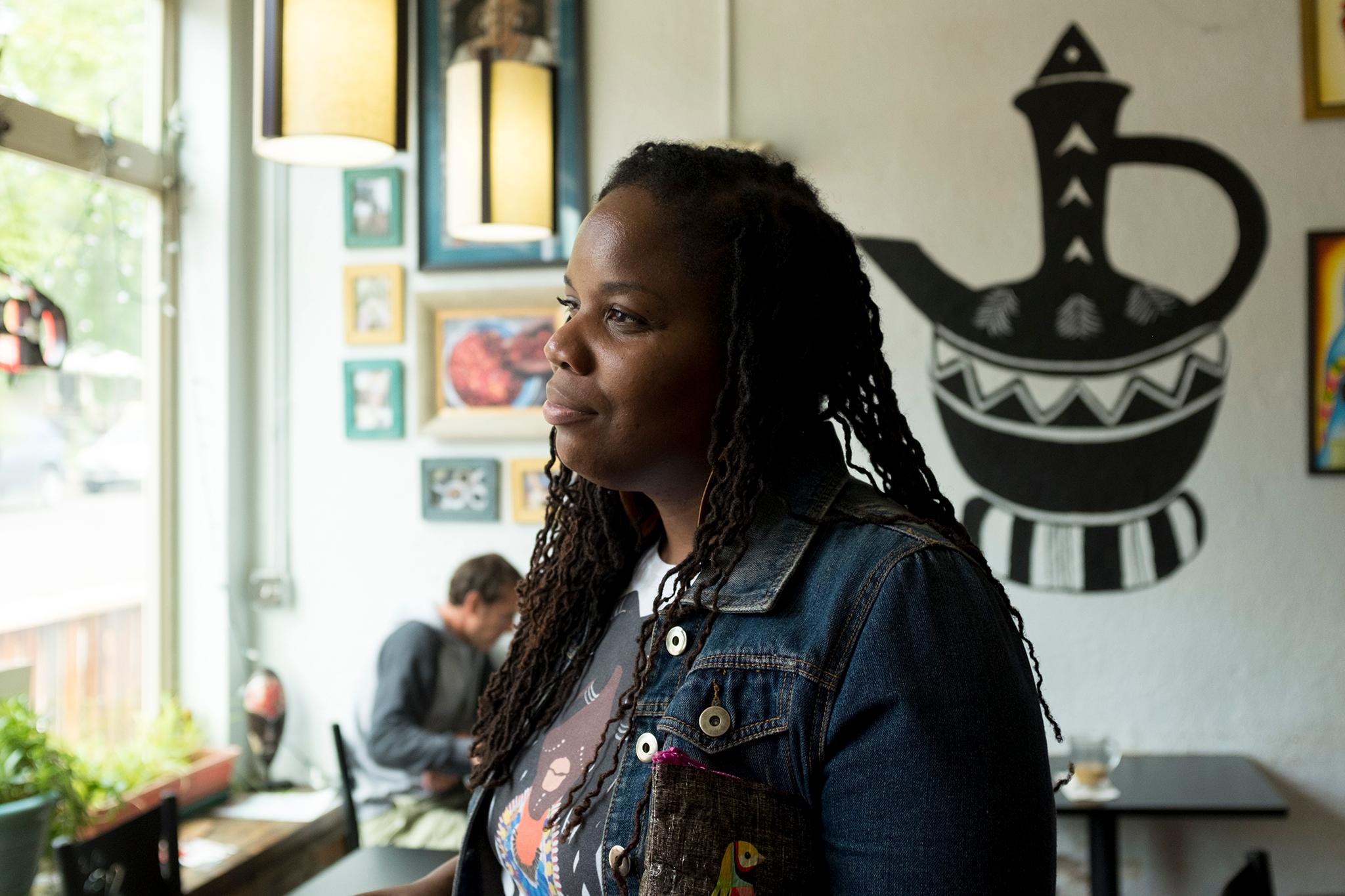
There is a significant disparity in breastfeeding rates between black and Latina women and their white peers, largely due to a legacy of different access to education.
“They have access. Think about 10 years ago — all the marketing and campaign images were all white, so white women began to normalize breastfeeding way before women of color did. We're 10 years behind them when it comes to normalizing it, just like native and indigenous women are 10 years behind us because ain't no Native American, indigenous breastfeeding campaign,” Tolliver said.
She's careful in understanding and pointing out that not all women see breastfeeding as the best option for them and their children. Things like sexual trauma or sexual abuse can be reasons women don’t want to breastfeed, and Tolliver wants others to keep those reasons in mind as they push for awareness.
This week, she simply sees an opportunity for women to shift the narrative around breastfeeding and work toward making it accessible.
“Our whole idea is normalizing public breastfeeding," she said. "Think of breastfeeding as food access. When we think about food deserts, people can kind of get behind that. You live in a zip code with no grocery store or access to fresh fruits and vegetables and dairy and meat — what if we thought about it in terms of this baby having access to fresh food? That milk is the produce. It is the meat. It is the grain. It is the food."
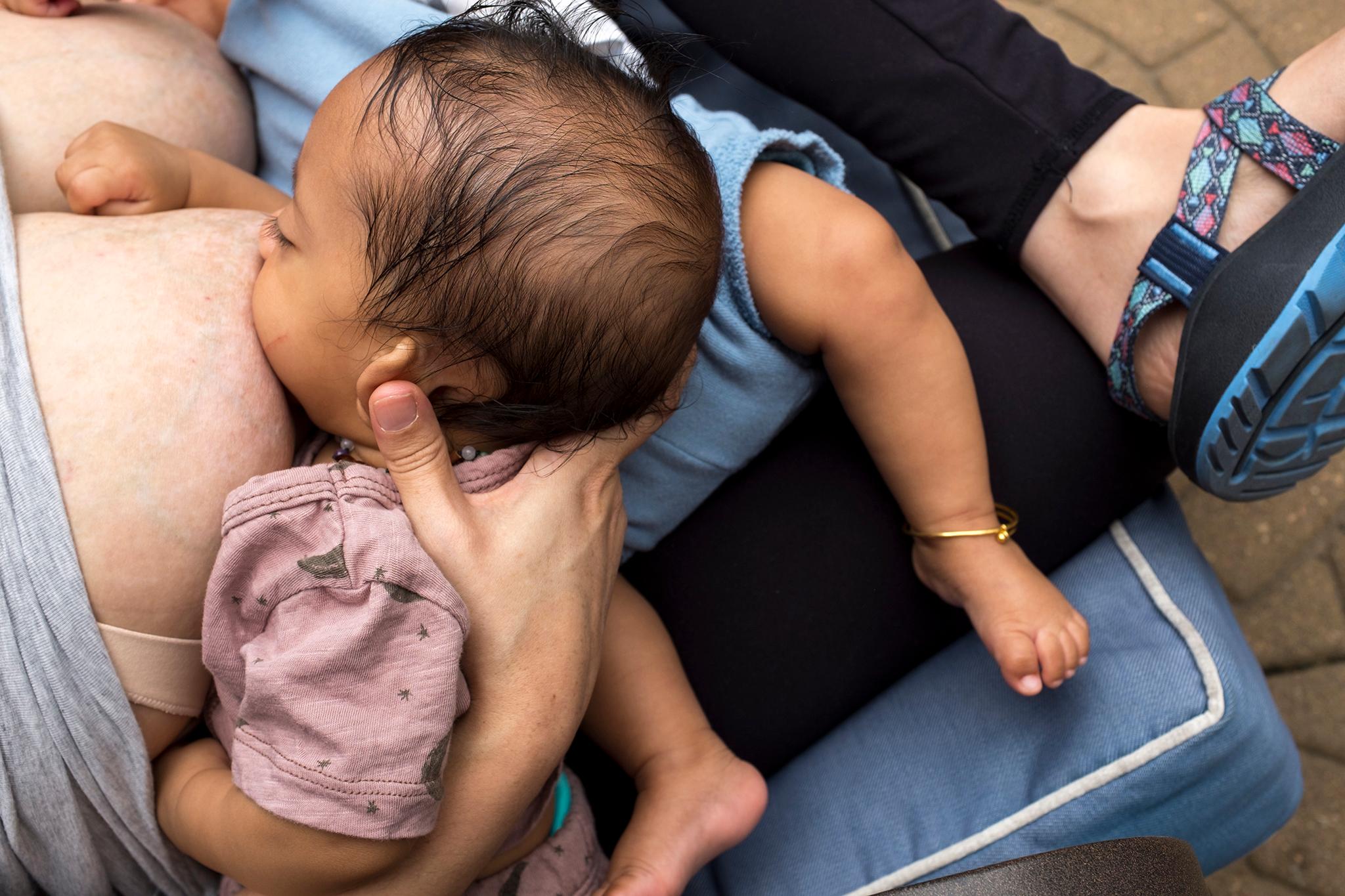
Her vision is for any woman that wants to breastfeed her baby to have the support system around here to do so: “Everybody that wants to breastfeed should have the ability to breastfeed, 100 percent, right. So if this mother, when she's pregnant, decides, 'I want to breastfeed my baby for six months,' we should be doing everything we can from the time the baby is born to that first interaction together in the hospital, we should be trying to get that baby latched on and breastfed exclusively if that is the mother wishes."
One of the ways this can be done, according to Tolliver, is having clear policies that reinforce a woman’s right to feed their child. In Colorado, wherever a person can eat and hang out, a woman is allowed to feed her child, but Tolliver believes that Denver has a long way to go before black and brown women have the structural support they need.
“We still don't have organizations that are bringing in big bucks. Like the Rocky Mountain Children's Health Foundation, the Mothers Milk Bank, Colorado Breastfeeding Coalition — they have nothing on their agenda to address black and brown breastfeeding or black infant mortality. Denver County Health, Denver Public Health — there's nobody putting this on the bigger agenda. We're still pushing to get a seat at the table,” she said.
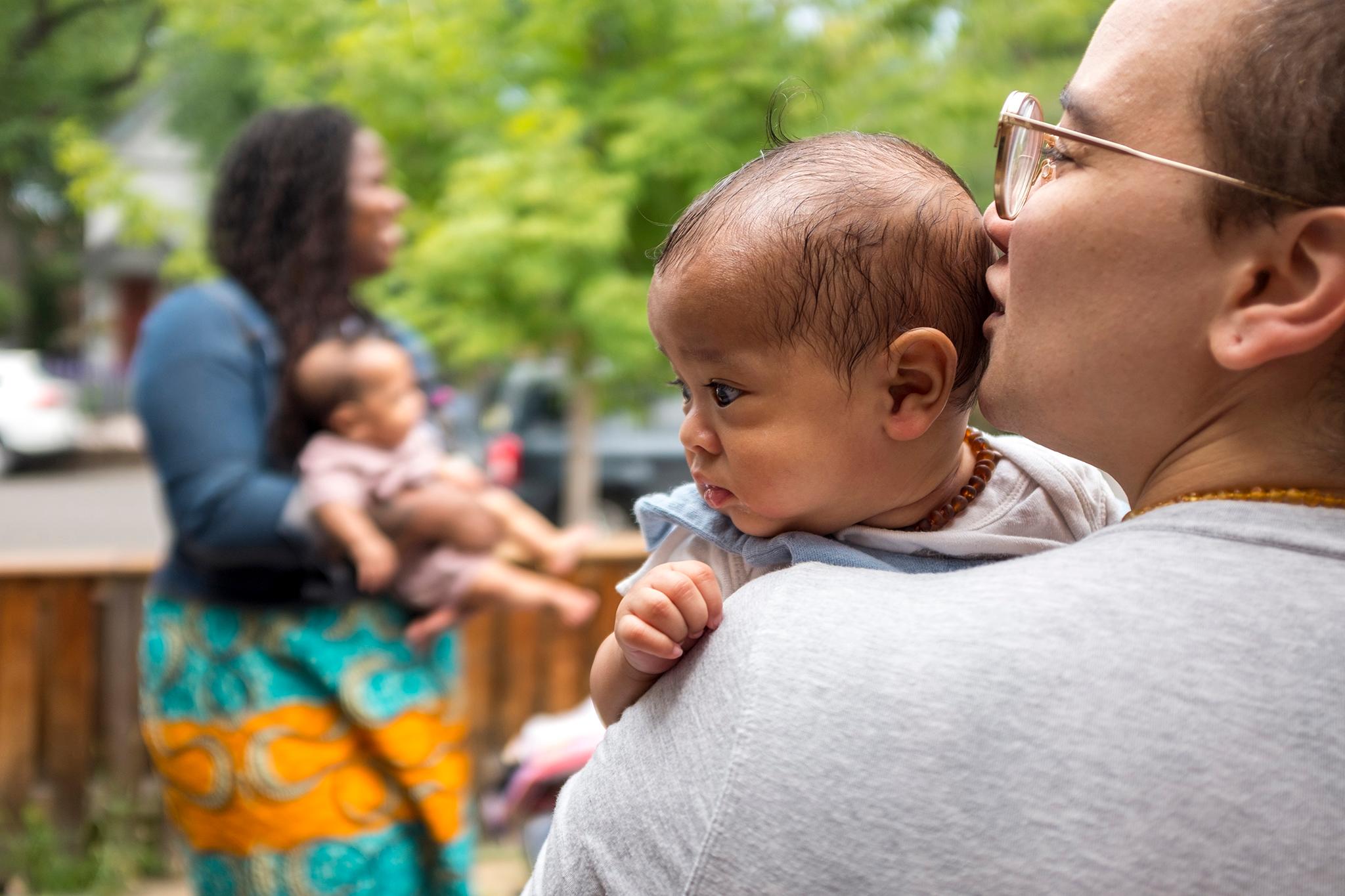
Amanda Ogden, co-founder and director of lactation services and education for The Mama 'Hood, faces the same challenges of cultural and structural barriers in breastfeeding. She is appalled by the lack of access, information and support for women of color.
“The barriers against breastfeeding are enormous in this country. If you’re a woman of color it’s even more stacked against you,” she said. “Breastfeeding has become a luxury that many mamas can't afford; they don't have the tools. They need to protect their milk supply, and they don't have employers that understand the law, which means they have to advocate for themselves, which is too much to ask a young mama to do.
"We as allies need to not be arrogant enough to think we can fix this. We need to reach a helping hand out, we need to give scholarships to women of color, we need to let them skip steps so we can let them get caught up."
She has observed that people learn best from people that look like them and in order to facilitate that process, she believes women of color need to be empowered so they have the tools to teach other women of color how to normalize breastfeeding in their communities.
The Mama 'Hood offers an internship that incentivizes women of color to participate by allowing greater flexibility regarding prerequisite education because she believes women must “piggyback” each other to do breastfeeding advocacy on every level.
The Mama 'Hood's clientele is mostly financially stable white women in Denver, but Ogden believes that can have its advantages in the fight to normalize breastfeeding. She hopes that allies like those affluent white women will be able to use their position to impact change that will help all women.
“We serve a population that is generally middle-class white. The good thing about serving the ‘haves’ is they have a big megaphone. If they say to their providers, employers that we need this, it will hopefully trickle down to policy being changed,” Ogden said.
On the flipside, Tolliver feels like that can be remedied by grassroots initiatives that give women the support they need on a very personal level: “There is a movement, but I also believe there's not enough practical shit here in Denver for black and brown women. Support groups, nope. Mommy meet-ups, nope. They need a place they can actually go and see women who look like them."
